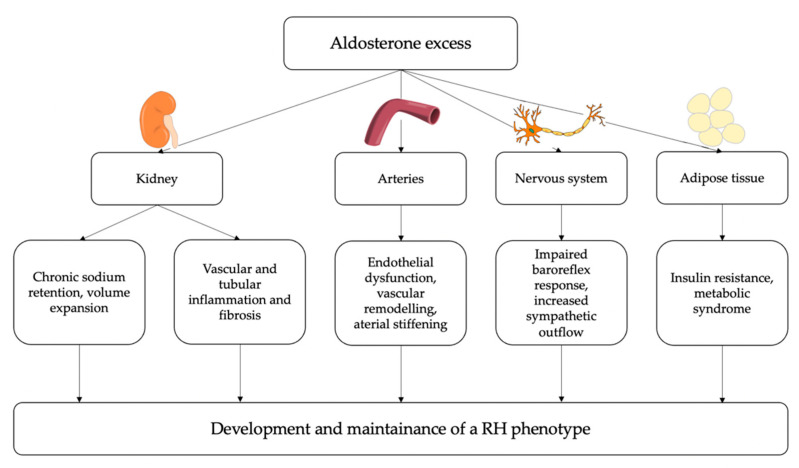Figure 3.
Potential pathophysiological mechanisms linking aldosterone excess and resistant hypertension (RH). At a renal level, aldosterone induces chronic sodium and water retention, leading to intravascular volume expansion; moreover, aldosterone can contribute to vascular and tubular inflammation and fibrosis, thereby impairing kidney function. At a vascular level, aldosterone induces endothelial dysfunction, oxidative stress, inflammation and fibrosis thereby leading to arterial stiffening. Additionally, aldosterone excess can directly influence sympathetic activity and can also have a role in the development of insulin resistance and metabolic syndrome. Eventually, these detrimental effects of aldosterone excess on several target tissues can contribute to the development and maintenance of resistant hypertension.

